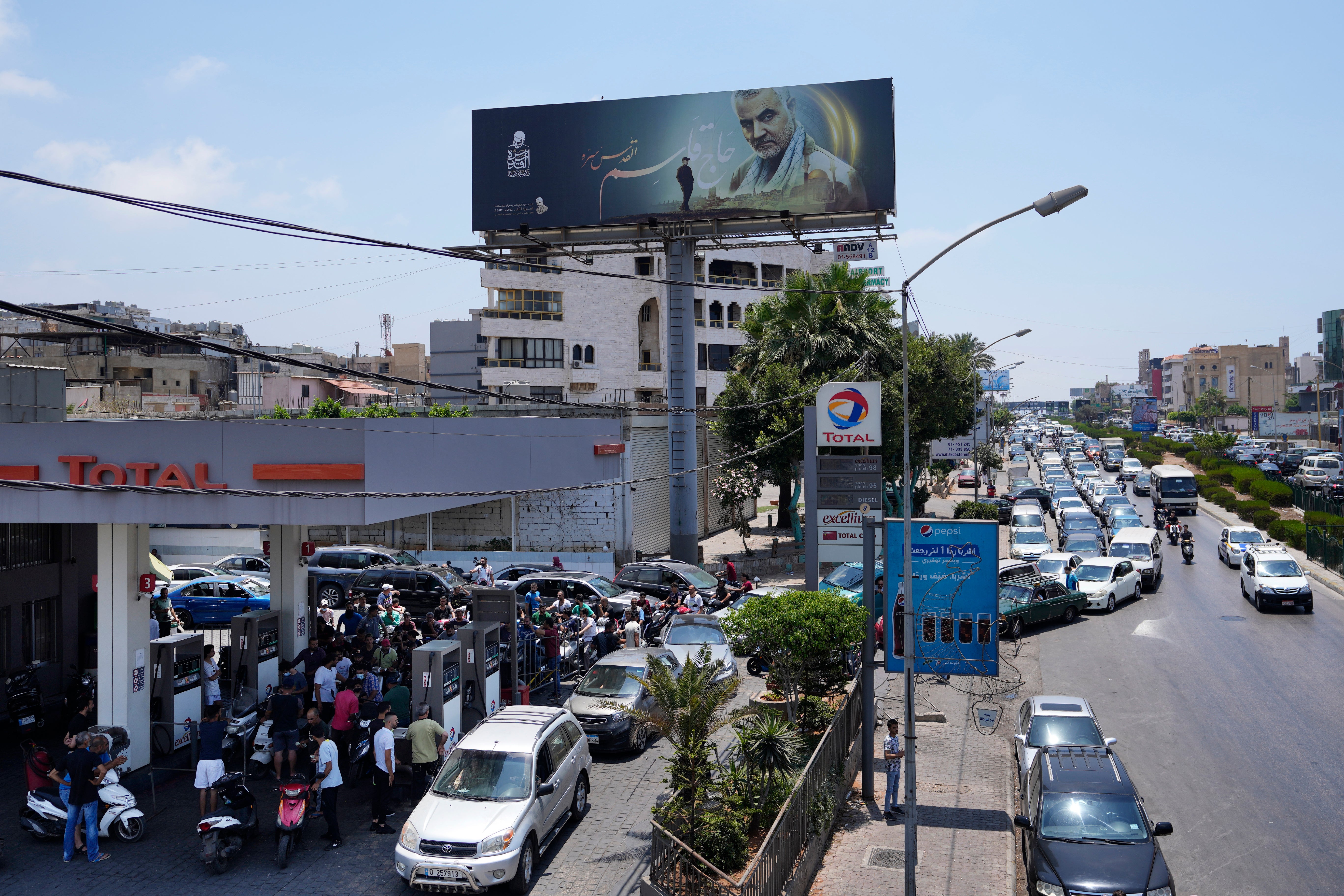Lebanon increases fuel prices by more than 35% amid crisis
Lebanon energy ministry has increased gasoline and fuel prices by 35%, a move that could lead to a sharp increase in prices of most commodities in the crisis-hit country

Your support helps us to tell the story
From reproductive rights to climate change to Big Tech, The Independent is on the ground when the story is developing. Whether it's investigating the financials of Elon Musk's pro-Trump PAC or producing our latest documentary, 'The A Word', which shines a light on the American women fighting for reproductive rights, we know how important it is to parse out the facts from the messaging.
At such a critical moment in US history, we need reporters on the ground. Your donation allows us to keep sending journalists to speak to both sides of the story.
The Independent is trusted by Americans across the entire political spectrum. And unlike many other quality news outlets, we choose not to lock Americans out of our reporting and analysis with paywalls. We believe quality journalism should be available to everyone, paid for by those who can afford it.
Your support makes all the difference.Lebanon s energy ministry on Tuesday increased gasoline and fuel prices by 35%, a move that could lead to a sharp increase in prices of most commodities in the crisis-hit country.
The hike came days after caretaker prime minister, Hassan Diab granted approval for financing fuel imports at a rate higher than the official exchange rate, effectively reducing critical fuel subsidies.
Lebanon is going through an unprecedented economic and financial collapse, coupled with a monthslong political deadlock over the formation of a new government.
The developments pose the gravest threat to the small country’s stability since the end of its civil war three decades ago. The World Bank said the crisis is among the worst the world has seen in 150 years.
Fistfights and shootings have erupted at some gas stations over the past weeks as frustrated citizens lined up for hours to fill up their tanks and the shortages have led to protests around Lebanon.
Electricity cuts last for much of the day, and people have had to turn off private generators for several hours to ration fuel. Last week, the economy ministry raised the price of subsidized bread by 18%, the fifth time it was raised in a year.
The price of gasoline, which in Lebanon is calculated for 20 liters (about 5 1/2 gallons) reached 62,000 Lebanese pounds at the 35% increase, or about $3.6 according to black market rates. Despite the hike, motorists still lined up at gas stations Tuesday to fill their tanks. Diesel increased 38%, to 46,100 pounds — about $2.7 on the black market.
Fuel distributors representative, Fadi Abu Shakra, urged calm. He was quoted by the Lebanese state news agency, NNA as saying that six fuel tankers began offloading oil products after midnight on Monday to ease demands.
The Lebanese pound hit a new low over the weekend, selling at 18,000 pounds to the dollar on the black market. The pound has lost more than 90% of its value since the crisis began with nationwide protests against the country’s political class in late 2019.
There are several exchange rates — including the official rate that still stands at 1,507 pounds to the dollar. Two other exchange rates, both authorized by the Central Bank, are 3,900 pounds to the dollar for withdrawals from bank accounts and 12,000 pounds for $1 for imports of several products.
The decree signed by Diab on Friday allows the financing of fuel imports at an exchange rate price of 3,900 pounds.
The crisis, rooted in decades of corruption and mismanagement, has worsened in recent weeks with the Central Bank cutting back on financing imports at subsidized dollars. Foreign currency reserves have dropped dangerously low, from $30 billion at the start of the crisis, to nearly $15 billion currently. That has prompted merchants to either raise prices or stop imports.